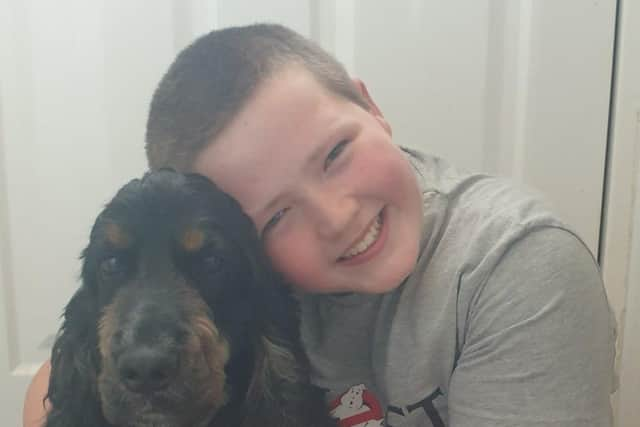Deaf Lancing youngster calls for face mask change: ‘They make me feel sad and lonely’
and live on Freeview channel 276
Austin Goddard, 11, is classified as ‘severely to profoundly deaf’ and relies on lip-reading to understand what people are saying.
Like many deaf people, Austin has struggled to lip-read and understand facial expressions since face masks, which are not conventionally transparent, became more widespread.
Advertisement
Hide AdAdvertisement
Hide AdNow the 11-year-old has asked for see-through masks to be introduced in a letter to Boris Johnson, which he filmed himself reading on social media.


“I have to lip-read to understand what anyone is saying, and so do a lot of my friends,” he said.
“The masks that cover up mouths are awful. I don’t like them and they make me feel sad and lonely because I can’t understand what anybody is saying. I also find them very scary.
“It’s important for deaf people to see lips and I’d like everyone to wear a see-through mask.”
Advertisement
Hide AdAdvertisement
Hide AdFrom June 15, face coverings will be compulsory in places where social distancing is not possible, including on all public transport.
Austin’s mum, Justine, said she was proud of her son for raising the issue but was sad that a child had to highlight something that ‘should already be in place’.
She called for clear masks to be available for key workers ‘at the very least’.
The Goddards have been backed by the National Deaf Children’s Society, which has also lobbied the Government for change.
Advertisement
Hide AdAdvertisement
Hide AdThe National Deaf Children’s Society has also called on the Government to look into making clear face masks widely available.
Sally Etchells, government relations adviser at the charity, said deaf people faced ‘months of misery’ if face masks become more widespread, putting them at higher risk of isolation and loneliness.